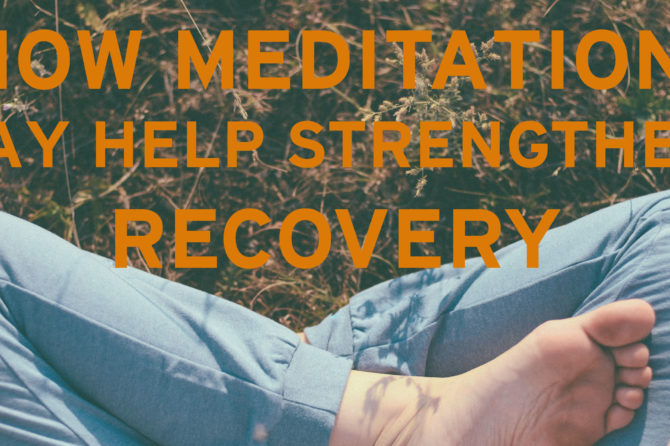
How Meditation May Help Strengthen Recovery
Struggling with addiction is overwhelming. You are dealing with physical transformations, navigating emotional stresses, and ushering in a whole new lifestyle. The entire process requires immense focus, and meditation can pave the way to a more mindful new existence.
Rewiring Your Brain
In addition to its various psychological components, addiction has a definite chemical correlation. Various substances have the ability to flood your brain with chemicals that elicit mood alterations, but you can counteract those forces through meditation. You can reduce your stress-induced cortisol levels while boosting your interleukin reserves, giving you more energy and improved immunity.
Sustained mediation actually has the ability to reroute your neural pathways and reshape your brain. Many people in recovery begin to see themselves in a whole new life, and one major factor in that overall transformation: perceiving the world with a brighter cognitive perception. Meditation helps to jumpstart the optimistic new you.
Defeat the Distractions
Substance use presents a constant lure towards behavior that you’re trying to avoid, so it is imperative to train your brain to eradicate unwanted distractions. Recent studies have proven that meditation allows the participant to harvest his or her “alpha rhythm” and tone down the cognitive noises that detract from your desired train of thought. Participants reported being able to remember new information and access these facts more readily.
Imagine fiddling with a radio to tune into the station you want to hear. By increasing your alpha rhythms, you are effectively intensifying the frequency of the brainwaves that amplify that desired station and drowning out the static. In this metaphor, the static is an addiction; meditation can help you silence that noise for good.
Putting Your Clear Mind to Work
Many recovery success stories are filled with tales of how former addicts often replace destructive habits with more productive ones and sharpening your mind can help launch you into the hobby of your choice.
Whether you take up reading, pursue a new business venture, or learn a foreign language, meditation can help prime your cognition. Studies indicate that mindfulness training improves memory functions, decision-making abilities, and visual/spatial reasoning. This sense of renewed cognitive vigor will whet your cerebral appetite for new challenges and curiosity aplenty, catapulting your fresh consciousness into verdant, thought-provoking territory.
Avoiding Relapse
No matter how productive you may be, depression has a way of sneaking up on you. According to some statistics, approximately 80 percent of recovering addicts who experience depression consider resuming their substance use. But medicating your way out of depression may trigger a new and unwelcome pharmaceutical crutch.
Instead, a more effective way of preventing depression could be mindfulness meditation. This tool allows people to recognize the burgeoning depression within them and face these darker thoughts before they consume their minds completely. By warding off the demons of depression, you could also avoid becoming a relapse statistic.
Reducing Anxiety, Reducing Temptation
On the flip side of the depression coin, you often find anxiety. Recovery can be stressful and these stresses often trigger our worst impulses. By practicing meditation, it’s possible to stem the tide of anxiety before it escalates. One particular study illustrates how even one session of Mindfulness-Based Stress Reduction (MBSR) resulted in significantly lower readings on the Hamilton Anxiety Rating Scale (HAMA).
In addition to reducing anxiety, this test indicated that individuals practicing mindfulness also recorded higher instances of positive self-statements. This is key to a successful recovery. If you don’t think that you’re worth saving, then it will be hard to convince the world of your commitment to sobriety. Negativity leads to doubts, which leads to relapse. Mindful meditation helps boost your self-image, which is essential to self-improvement.
Equality in Recovery
Self-improvement has ramifications further than your recovery. Being a better person actually helps make you a better member of society. One fascinating study proves that mindfulness meditation can help reduce a person’s racial and age biases. By seeing the world as an equal playing field, it will help to see the future as fair and fruitful: the ideal landscape for a successful recovery.
But removing bias has more profound psychological impacts than just reversing prejudice; it means that you can break with your previous cognitive associations. For example, if you drive past a bar and recall some past memories with the establishment, the association could tempt you to revisit the bar and forsake your sobriety. However, mindful meditation can help you reconsider such associations. You can look at the bar anew and draw fresh conclusions. Does this place look like a healthy environment for me? Will I make decisions that benefit my future self? Were my fond memories of the bar really all that fond, or am I engaging in revisionist history?
By creating new cognitive associations through mindful meditation, you are charting a vibrant set of options for your brain, for your behavior, and for your soul. While this journey is wholly yours, it helps to have a friendly, caring guide along the way. Our holistic approach travels all the way from the majesty of Eastern philosophies of centuries past to the reality of the here and now. But this quest doesn’t end with the initial stages of detoxification; recovery is a lifestyle choice, and you’re in it for the long term. Welcome to your mindful, meditative new tomorrow!
Leave a reply